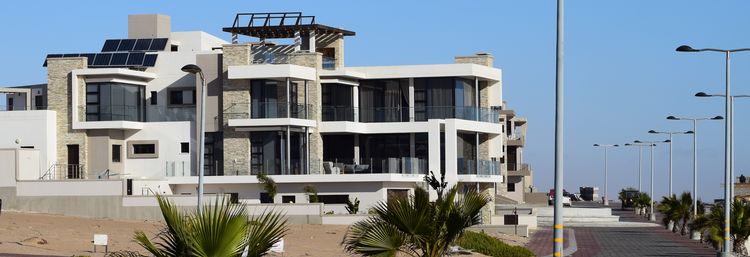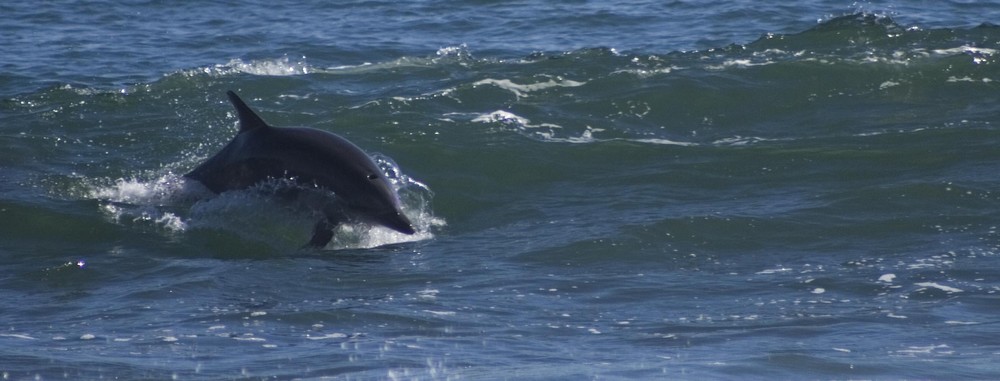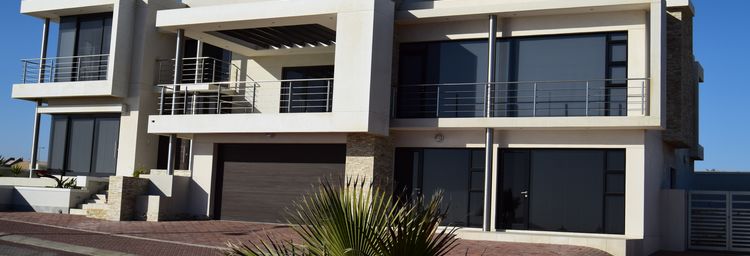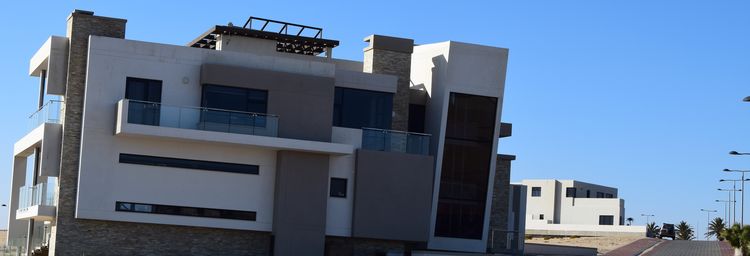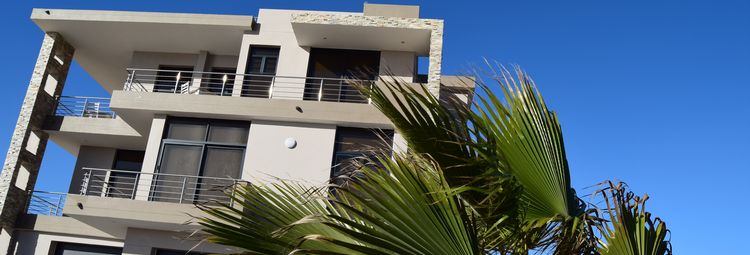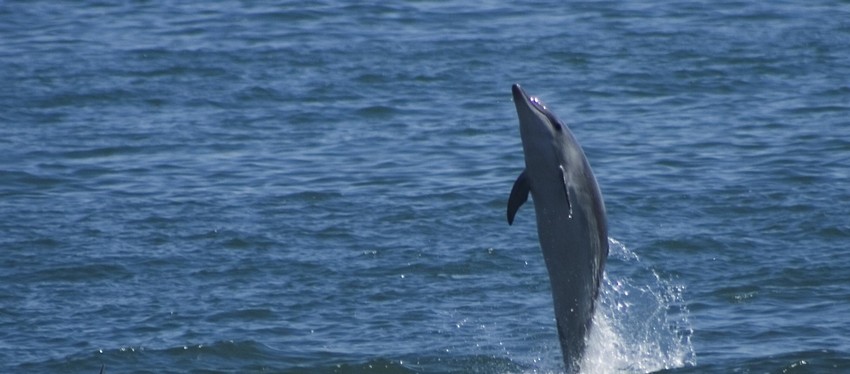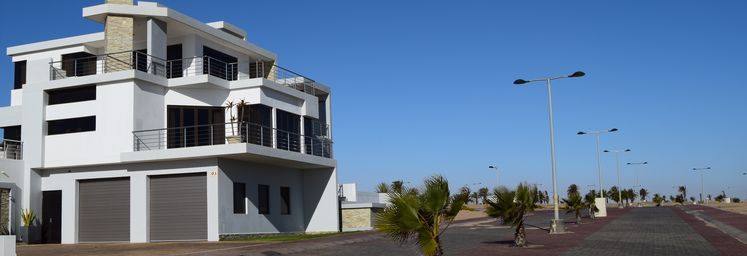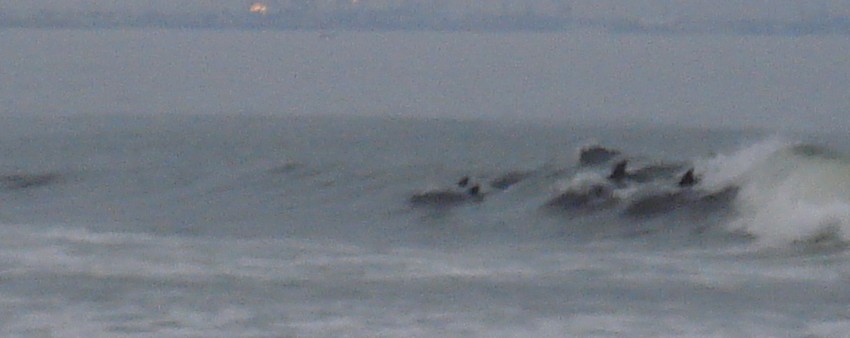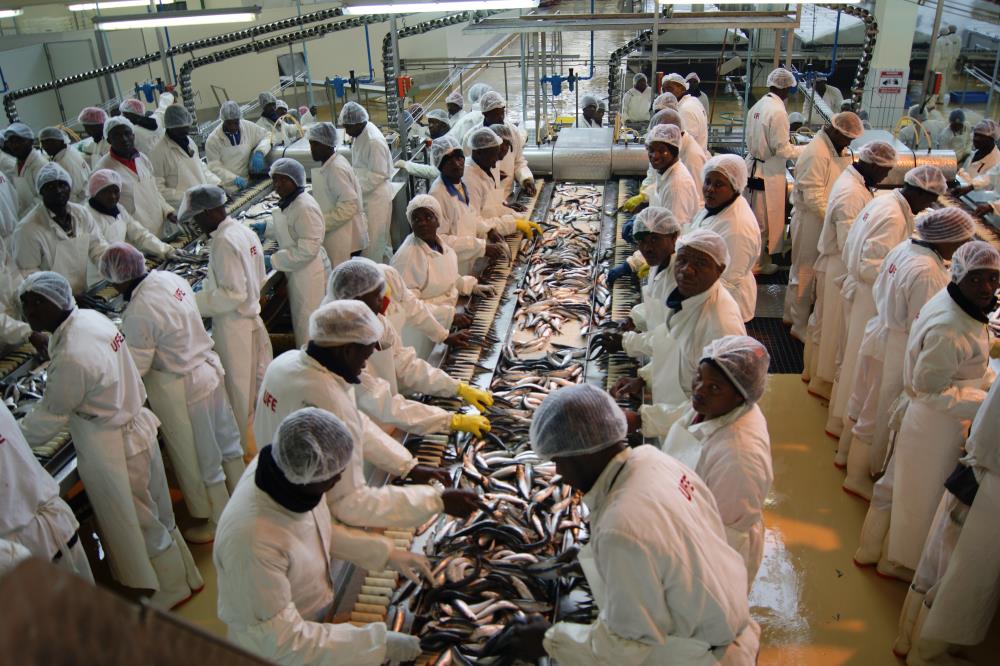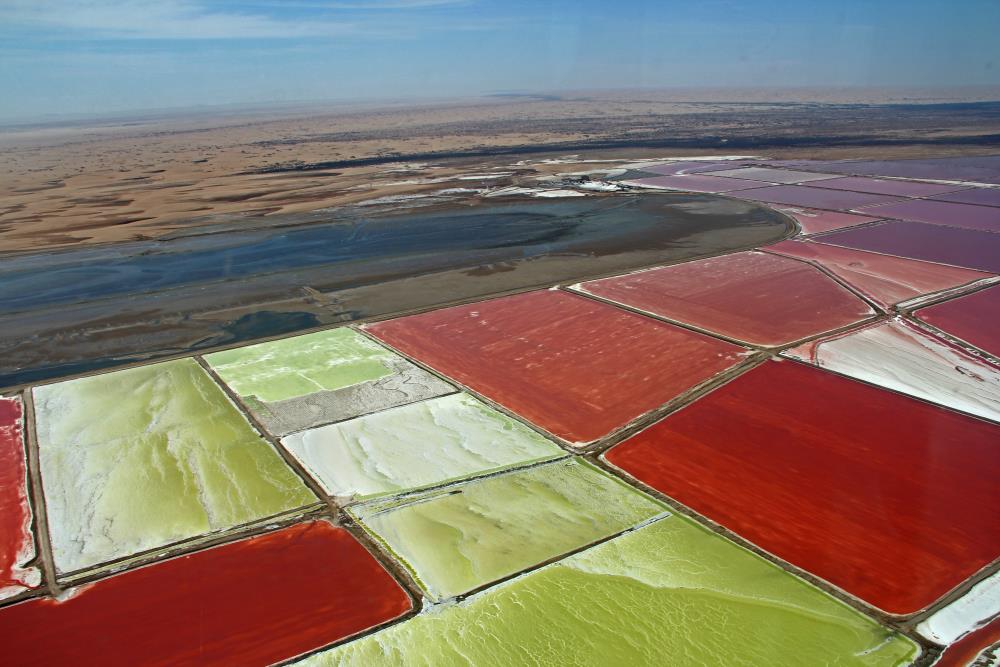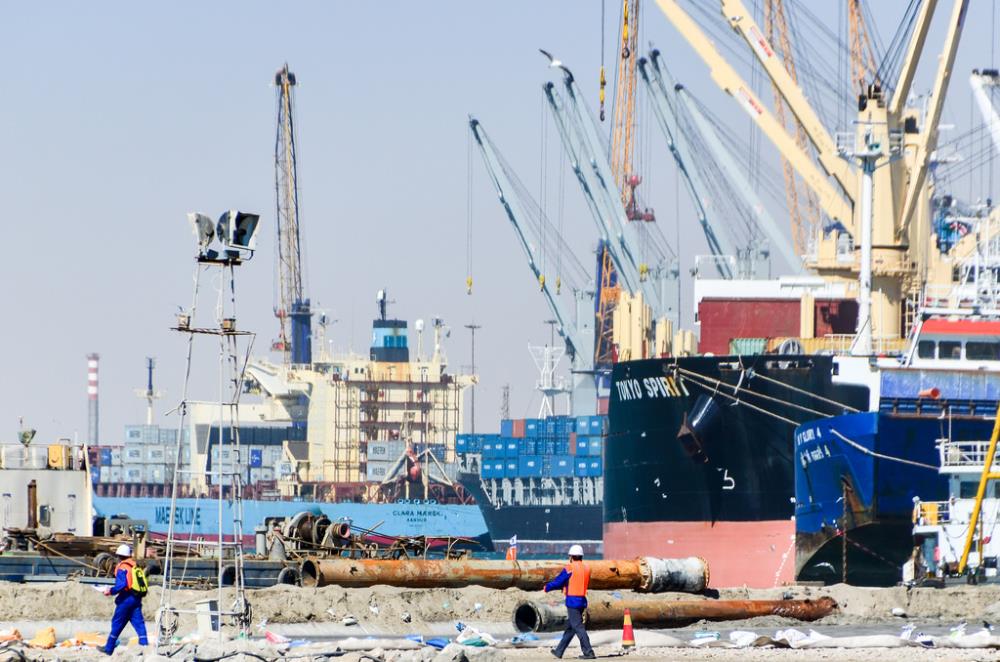Economy & Industries
The fishing Industry of Namibia is respected as one of the most well managed industries in the world and employs approximately 10,000 people. With more than 2km of landing quays, cold storage, processing and canning facilities the fishing industry continues to play an important role in the development of Walvis Bay. The main species harvested are Hake, Horse mackerel, Pilchards, Rock Lobster (grayfish), Tuna, Sole and Orange Roughy. Walvis Bay also produces fishmeal for various purposes. Aquaculture has taken over as a focus growth area in the bay in the form of extensive Oyster, Mussel and Abalone production. High value-added fish products are processed for export purposes to niche markets in Europe, Australia, United States, Far East and Africa.
ENGINEERING & MANUFACTURING
With the need for oilrig and ship repair/maintenance, well-equipped engineering firms with a high degree of expertise have emerged to provide a wide range of services to the fishing and other industries. This has also spawned to support industries such as shipping agents, ship chandlers, construction, retail services, transport and accommodation.
The 3,500-hectare salt field to the south of Walvis Bay is one of the largest solar evaporation facilities in Africa, processing 42 million ton of seawater each year to produce more than 1,200 000.00 tons of high-quality salt. The saltpans are situated be seen south of the Walvis Bay’s Lagoon and is especially eye-catching due to the different hues of red water that the evaporating salt causes.
GRANITE
Rough blocks of granite are quarried about 15 km to the east of Walvis Bay.Currently the largest cutting and manufacturing plant in Africa under 15 000 square meters, is in Walvis Bay. The granite has an attractive yellowish-grey colour. The rough blocks of granite are cut and polished in Walvis Bay and it is then exported as natural stone product for overseas markets notably the US and European markets for use in hotel lobbies, kitchens and other areas that require a marble like finish.
URANIUM
Close to Walvis Bay, two uranium mines are operational and 12 more are in process. About 3,800 tons uranium is produced annually and has led to a boom in interest from global players that wish to secure supplies for their nuclear energy expansion plans. The interest in uranium is a boost to our economy. The increase in local uranium mining enables Namibia to contribute towards resolving the global energy shortage.
OIL AND GAS
Offshore exploration for oil and gas along the Namibian coast continues. The port serves as an important supply centre to the various companies prospecting and offshore activities along the coast of Namibia.
The port of Walvis Bay play a critical role in freight logistics and supply chain management of imports and exports between the rest of the world anlandlocked SADC countries. The role of transport and logistics has become increasingly important for Namibia’s economy. With the rapid growth in cargo volumes along the Walvis Bay corridors and the benefits that the trade routes have to offer, Walvis Bay has been identified to become the logistics hub for Southern Africa. The Port of Walvis Bay, with its deep water depth and stable weather conditions, is strategically located to accelerate the growth of the SADC region as a whole by providing a gateway to Southern Africa. Costs and time savings are achieved along the Walvis Bay corridors by offering the shortest possible regional route on the west coast.
The Walvis Bay corridors are a network of transport routes comprising the Trans-Kalahari Corridor, Walvis Bay-Ndola-Lubumbashi Development Corridor (also known as the Trans-Caprivi Corridor), the Trans-Cunene Corridor and the Port of Walvis Bay. Fast, efficient and safe road and rail transport along the Walvis Bay Corridors further reduces transport costs and makes the regional economy more attractive to global players.
RETAIL & INDUSTRIAL INDUSTRIES
Retail businesses and shops flourish in the city where first world experiences can be enjoyed in the diversified business sector. Varied engineering, industrial and other businesses are found including diamond cutting and regional importers. A strong construction industry supports the building and development activities in and around the city. The local Namibian Dollar currency is equal to the South African Rand. Banking institutions provide comprehensive domestic and international banking services and ensure fast and efficient transfer of funds to and from any centre in the world. With the opening of the Dunes Mall most major retail chains now have outlets Walvis Bay





